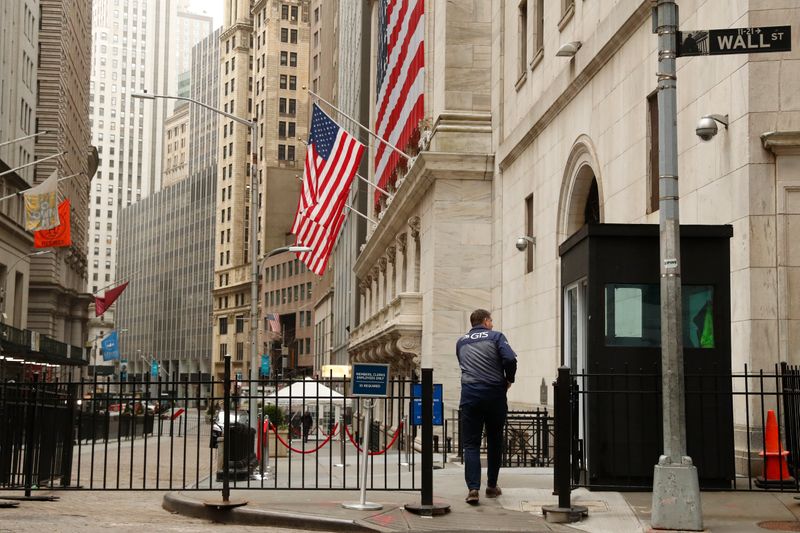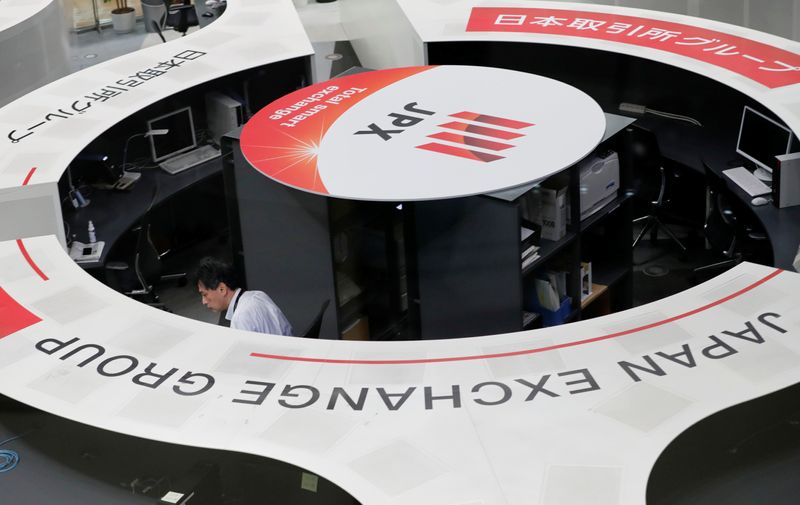By Rodrigo Campos
NEW YORK (Reuters) - Crude oil fell again on Thursday as lockdowns in Europe and rising cases elsewhere clouded the energy demand outlook, while stocks rose as Wall Street rallied.
France and Germany will fall back into coronavirus lockdowns next week, while cases are rising in 47 U.S. states with patients overwhelming hospitals in parts of the country.
The European Central Bank said it would increase its support for the bloc's economy amid the pandemic, weighing on the euro even as policy was left unchanged. U.S. gross domestic product soared to a widely predicted record bounce that helped trigger stock buying on Wall Street, enough to halt the rout on equities globally so far this week.
The S&P 500 rallied partly on bets for strong earnings from mega-caps, but was still down 4.5% for the week so far, as traders have shied away from risk on concern a new wave of COVID-19 infections will hinder the economic recovery.
The Dow Jones Industrial Average (DJI) rose 139.16 points, or 0.52%, to 26,659.11, the S&P 500 (SPX) gained 39.08 points, or 1.19%, to 3,310.11 and the Nasdaq Composite (IXIC) added 180.73 points, or 1.64%, to 11,185.59.
The pan-European STOXX 600 index (STOXX) lost 0.12% and MSCI's gauge of stocks across the globe (MIWD00000PUS) gained 0.44%. The global index is down 4.2% so far this week, which would be its largest weekly loss since March.
Japan's Nikkei (N225) fell 0.4% and futures were pointing higher, while Chinese blue chips (CSI300) rose 0.7%.
"Asia is not really partaking in this second or third wave story because it's got its COVID largely under control," said Rob Carnell, chief economist in Asia at ING.
Taiwan, which boasts Asia's best-performing currency this year, marked its 200th straight day without a local coronavirus transmission on Thursday.
Emerging market stocks lost 0.06%. MSCI's broadest index of Asia-Pacific shares outside Japan (MIAPJ0000PUS) closed 0.28% lower. Japan's Nikkei futures (NKc1) were up 1.00%.
Concerns hit commodities too, with oil again falling and down about 9% for the week so far.
"As lockdowns begin to bite on demand concerns across Europe, the near-term outlook for crude starts to deteriorate," said Stephen Innes, chief global market strategist at Axi.
U.S. crude (CLc1) recently fell 2.97% to $36.28 per barrel and Brent (LCOc1) was at $37.77, down 3.45% on the day.
Uncertainty about Tuesday's U.S. election also kept traders on edge. Republican President Donald Trump and Democratic rival Joe Biden will rally supporters in the battleground of Florida, visiting the same city hours apart to offer their contrasting approaches to the resurgent coronavirus pandemic.
The ECB held off on new measures on Thursday but it hinted at action in December, which is likely to keep the euro under pressure.
The dollar index (=USD) rose 0.521%, with the euro (EUR=) down 0.61% to $1.1672.
The Japanese yen
The Bank of Japan made no changes to monetary policy settings overnight, as expected, though it trimmed its growth forecasts to reflect sluggish services spending.
Benchmark Treasury yields rose, tracking U.S. stocks, despite little initial reaction to the strong GDP number.
The 10-year note (US10YT=RR) last fell 16/32 in price to yield 0.8331%, from 0.781% late on Wednesday.

Spot gold
